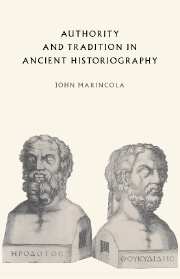Book contents
Preface
Published online by Cambridge University Press: 29 January 2010
Summary
I began this work with a simple question: what do ancient historians tell us about themselves? Like many simple questions, it proved rather difficult to answer. Ancient historians give us a great deal of information about themselves, whether in their choice of subject, or their language of implied judgement, or what incidents they choose for elaboration, or how they see human actions and motivation. Indeed, it is only a slight exaggeration to say that for most ancient historians almost every sentence in their work tells us something about its creator. As I further refined the topic, I saw that I wanted to examine the Selbstdarstellung, the self-presentation or self-display, of the ancient historian, that is, how he claimed to be a trustworthy and authoritative narrator. When I saw that the same or similar claims reappeared so often, I realised that I also needed to consider the importance of tradition in ancient literary criticism and creation. And I began to see, moreover, how the two issues were closely related.
My goal in this book has been to examine the creation of authority as an aspect of the ancient historiographical tradition, as it developed from Herodotus and Thucydides. In doing this, I have treated many topics in ancient historiography that have been intensively studied for over a century.
- Type
- Chapter
- Information
- Authority and Tradition in Ancient Historiography , pp. xi - xiiiPublisher: Cambridge University PressPrint publication year: 1997

